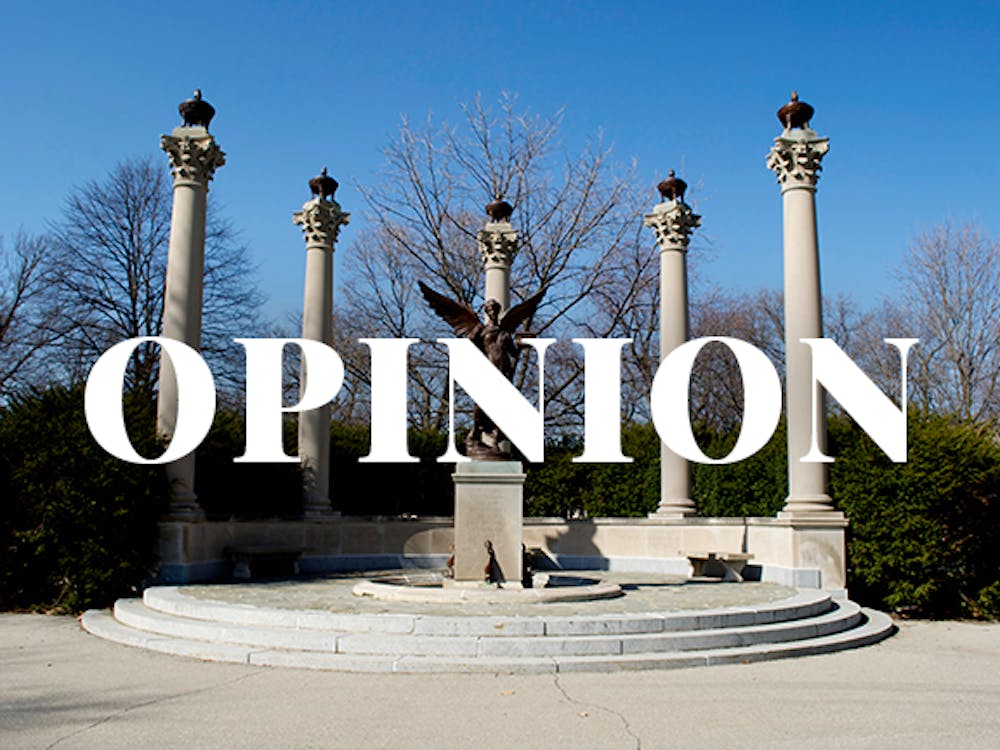Audrey Bowers is a junior English education major and writes "Adult-ish" for The Daily News. Her views do not necessarily agree with those of the newspaper. Write to Audrey at albowers3@bsu.edu.

My name is Audrey Bowers and I’m just like you. I drink too much iced coffee with my friends, struggle to find a decent place to park on Ball State’s campus, stress out about getting everything I’m supposed to have done and happen to enjoy a good Netflix binge.
Here’s what you might not know about me: I’m bisexual. I believe I knew this to be true around junior high or early high school, but I didn’t come out until I was a sophomore in college due to feeling unsafe due to the blatant homophobia that surrounded me. Praying the gay away didn’t work, and hiding it was more harmful than it was helpful.
Reading Becky Albertalli’s book “Simon vs the Homosapien Agenda,” which has been adapted into the film “Love, Simon,” during the fall semester of my sophomore year made me feel compelled to come out, since I became uncomfortable with everyone around me assuming that I was straight. I absolutely loved reading all about Simon Spier emailing Blue and meeting him at the end of the story. After reading the book, I came out as bisexual to those I felt I could trust (my RA, a few friends and my mom during winter break.)
Even though I came out and was out, I didn’t want everyone to know because I was still afraid of what they might think, and it just didn’t feel necessary. In my opinion, everyone should have to come out, straight or not. To this day, I find myself trying to not be “too gay” at times. It’s really a shame because I deserve to exist exactly as I am. The book and the film reminded me that sharing your truest self with other people is a vulnerable and brave act that is worth it in the end.
“Love, Simon” is a ground-breaking movie because of its diverse representation, which is needed because representation of LGBTQ people and people of color is still lacking in media. The movie features a gay, interracial couple and more than one leading person of color. Not only does it have this representation, but it provides a positive outlook for LGBTQ people. The LGBTQ characters are not killed off, aren't miserable and actually stand a chance at having a happy ending.
This positive outlook is so important because of the homophobia that is still present to this day and the difficult realities that queer youth face on a daily basis. LGBTQ youth often suffer the most. According to the CDC, 34 percent of LGBTQ youth were bullied on school property in 2015 and LGBTQ youth were three times as likely as heterosexual youth to seriously contemplate suicide. Love, Simon is so important because it shows teens what their lives should look like. Like Simon Spier, these teens deserve to be accepted exactly the way that they are, and they deserve the chance to have a great love story.
Seeing “Love, Simon” could’ve helped me tremendously. Maybe I could have been able to come to terms with my sexual orientation earlier and not have felt so ashamed for it. The movie shows LGBTQ and straight teens alike that straight shouldn’t be the default and that it’s okay to be who you are. The movie is helping so many present-day teens because they are being inspired to come out and to be proud of who they are. It’s creating conversations that need to happen.
The movie itself was phenomenal. I watched it two times in a row and loved it even more the second time due to its relatable characters, hopeful message and general light-heartedness.
While watching, I screamed, cried, laughed and smiled as I was rooting for Simon Spier to finally meet his love interest, Blue. I think that while I was rooting for Simon, I was also rooting for myself. It is nearly impossible to tell you how good that makes me feel.





